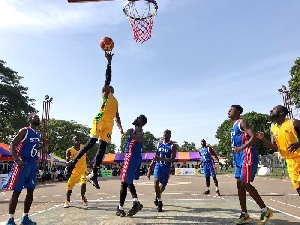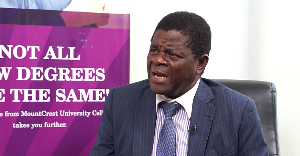It is hard to get over the factual reality that Ghana failed to qualify to play in the qualifiers for a chance to play at the 2021 African Nations Basketball Championship (AfroBasket). The statement above might discombobulate many; a simple breakdown goes like this.
Ghana was drafted into a group of nations to compete in the pre-qualification stage of the AfroBasket to earn the chance to qualify to compete in the main qualification phase. Progressing from the main qualification phase would have earned Ghana a spot at the 30th edition of the continental basketball championship to be staged in Kigali, Rwanda later this year.
However, none of that came to fruition because, despite the effort of the Ghana Basketball Association, the body’s $100,000 budget for the prequalification stage couldn’t get funded. So Ghana missed out on yet another AfroBasket while Kenya ended its 28-year wait for qualification with Liz Mills making history by becoming the first female Head Coach to lead a Men’s team to the AfroBasket. South Sudan qualified with Kenya and for the record, South Sudan gained independence in 2011 and has qualified to its first major championship since separating from Sudan.
13 countries have qualified to compete in this year’s AfroBasket with three more nations yet to be confirmed and among the list of qualified nations is Central African Republic (CAR). The country gained a qualification from Group A alongside DR Congo and defending AfroBasket Champion Tunisia. On the roster of the CAR team that wrapped up qualification this past weekend was a slightly built Guard named Cedric Nambai Methson.
While far from the most prominent player on the roster, his name is quite prominent in Ghana’s basketball annals in the wake of a solid run of production for a handful of teams on the Ghanaian scene over the past couple of years. As a student at Wisconsin International University College in Ghana’s capital, Accra, Methson played for the University’s basketball and did same for Tema Youth in the Accra Men’s Division I League and for Francophone All-Stars in the Tema League. “This guy is too good.
One of the best players I’ve ever played with and against stated Kwame Boamah Djan on Twitter who played alongside Cedric at Tema Youth but played against him in the Tema League since Djan is the Captain of Nungua Coldstore. Another Tema Youth teammate, Kofi Elias called Cedric a “tough guy, incredible teammate” also on Twitter attesting to the young player’s quality. At Wisconsin, Cedric played at the Universities, Polytechnics and Colleges (UPAC) Basketball Championship.
Away from Cedric and a quick flashback, an Ivorian very popular in Ghanaian basketball circles named Romeo Enan dominated basketball at Accra Technical University. He was so dominant, he ended up winning the 2015 Ghana Basketball Awards Tertiary Player of the Year prize while helping Accra Technical win the 2015 UPAC title. That aside, he helped Braves of Customs hammer all opponents en route to winning multiple league titles in the Accra Men’s Division I League.
Just like Methson, Enan has gone on to represent his country at the international level and played at the 2017 AfroBasket and 2019 AfroCan-tournament eligible to only African based players-for Ivory Coast. Now here are two guys who have played with and against some of the best in Ghana on the basketball court and have gone on to represent their respective nations at the top level yet their indigenous colleagues haven’t been able to do same despite their readiness and talent.
This queer case has a lot to do with the inability of sports leaders in Ghana to do their bit to put the sport on the map and make it an attractive avenue for the country’s talented youth. A handful of Ghanaian citizens go through a lot to raise funds in a country super focused on football to organize basketball competitions such as the UPAC and various leagues around the country to give basketball players the chance to compete and improve their skills.
Such platforms- UPAC, Tema League, Accra League- have been utilized by people such as Methson and Enan during their time in Ghana to maintain their skills or improve them or both and their respective countries have benefited from this. However, the lack of organization, funding and basically proper commitment to the course has prevented Ghanaian players who played with guys like Enan and Methson to do same for Ghana on the international scene.
The country has also missed out on a bevvy of individuals in the diaspora who had shown in years past their commitment to play for the nation only to be frustrated by these bottlenecks and end up playing for other countries particularly in Europe.
So as Ghana continues to miss out on making its mark on the continent and beyond and making good on the immense potential of its talented youth, the country continues to help other nations excel by giving their citizens the platforms to fine-tune their skills. And this is as curious a phenomenon as they come.
Basketball of Saturday, 27 February 2021
Source: Yaw Mintah, Contributor

















